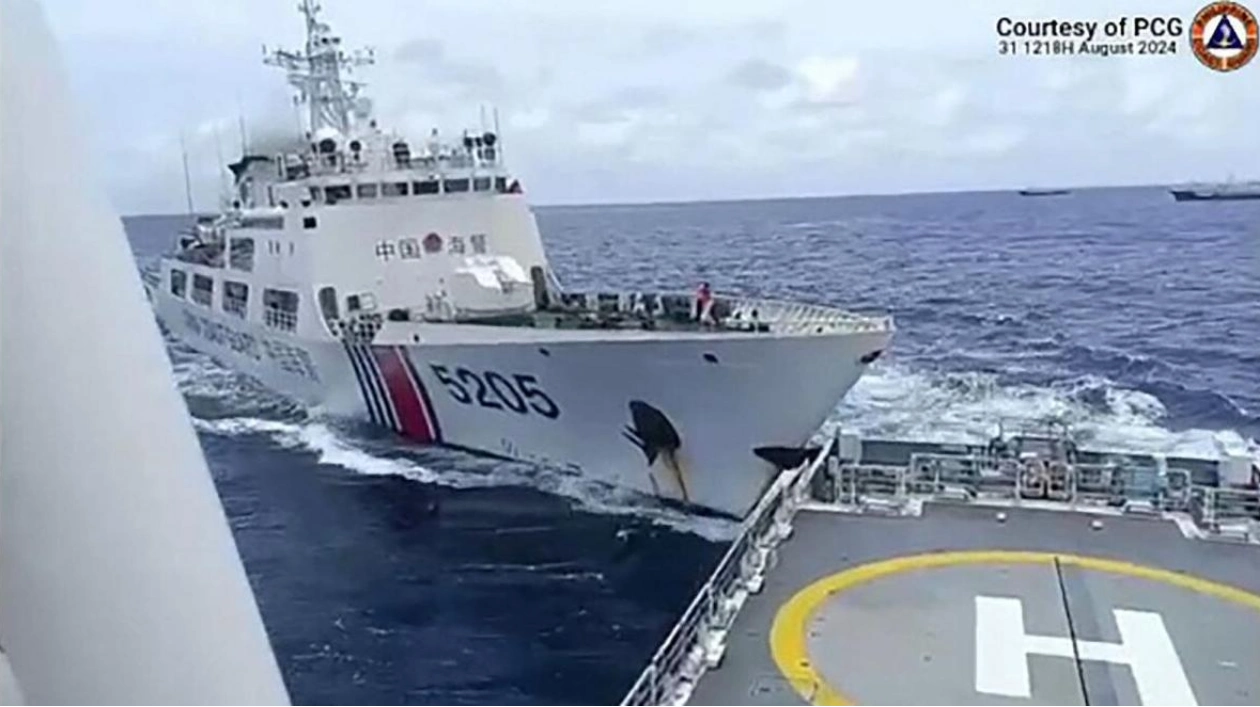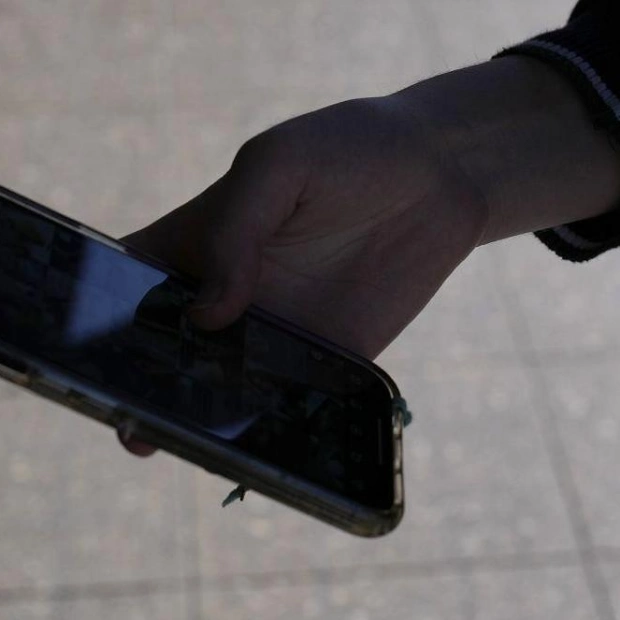China and the Philippines accused each other on Saturday of intentionally colliding their coast guard vessels near the disputed Sabina Shoal in the South China Sea, marking another incident in a series of similar confrontations in recent weeks. Beijing asserts sovereignty over nearly the entire strategic waterway, despite objections from other nations and a ruling by an international court that its claims lack legal foundation. A spokesperson for the Chinese coast guard stated that the incident occurred off Sabina Shoal, which has become a new focal point in the ongoing maritime disputes between the two countries. The shoal is situated 140 kilometers west of the Philippine island of Palawan and approximately 1,200 kilometers from Hainan Island, China's nearest significant landmass.
According to Liu Dejun, a spokesperson for the China Coast Guard, a Philippine ship deliberately struck a Chinese vessel near the shoal, known as Xianbin in Chinese, shortly after noon. Liu emphasized China's undisputed sovereignty over the area and criticized the Philippine vessel's behavior as unprofessional and hazardous. In contrast, Commodore Jay Tarriela, a spokesperson for the Philippine Coast Guard, claimed that it was the Chinese vessel 5205 that intentionally rammed the Philippine ship, BRP Teresa Magbanua, which has been anchored in Sabina Shoal since April to reinforce Manila's territorial claim. Tarriela detailed that the BRP Teresa Magbanua was hit three times, causing damage to the ship's structure but no injuries to the crew.
The United States, a key ally of the Philippines, condemned China's actions as dangerous and escalatory, urging Beijing to align its claims and actions with international law and to refrain from destabilizing conduct. This incident marks the fifth instance of Chinese maritime harassment this month, according to the Philippine Coast Guard. The National Maritime Council of the Philippines expressed serious concern and plans to report the incident to the Department of Foreign Affairs for review and potential action. Analysts suggest that Beijing is attempting to extend its influence deeper into the Philippines' exclusive economic zone, aiming to establish normalized control over the area.
Recent discoveries of crushed coral at Sabina Shoal have raised suspicions in Manila about China's intentions to construct another permanent base there, potentially serving as its closest outpost to the Philippine archipelago. Additionally, tensions have escalated around Second Thomas Shoal in the Spratly Islands, where a Filipino sailor was severely injured in a confrontation with Chinese coast guard members in June. The ongoing confrontations have led the Philippines to label China as the primary disruptor of peace in Southeast Asia, as highlighted at a recent defense conference.






